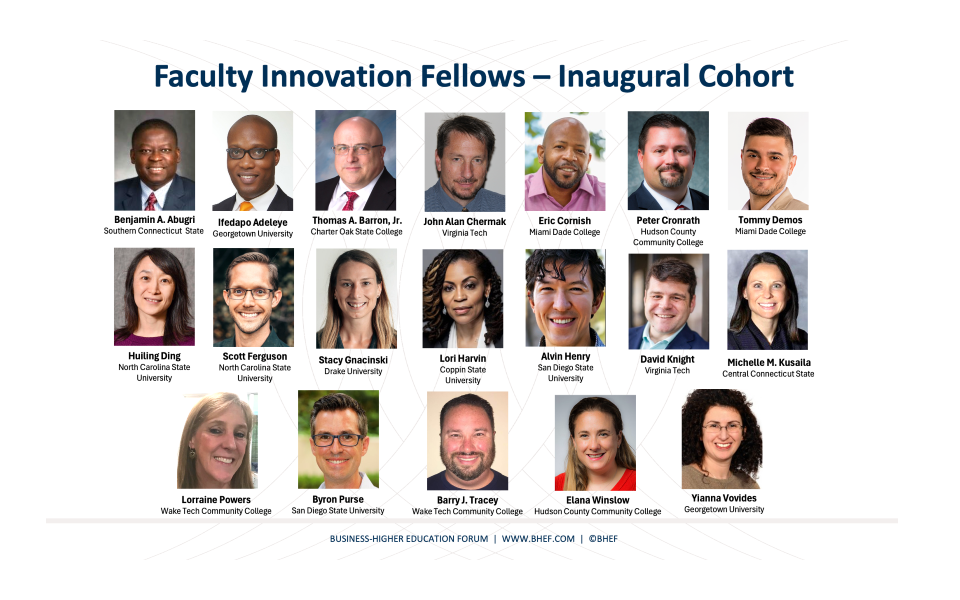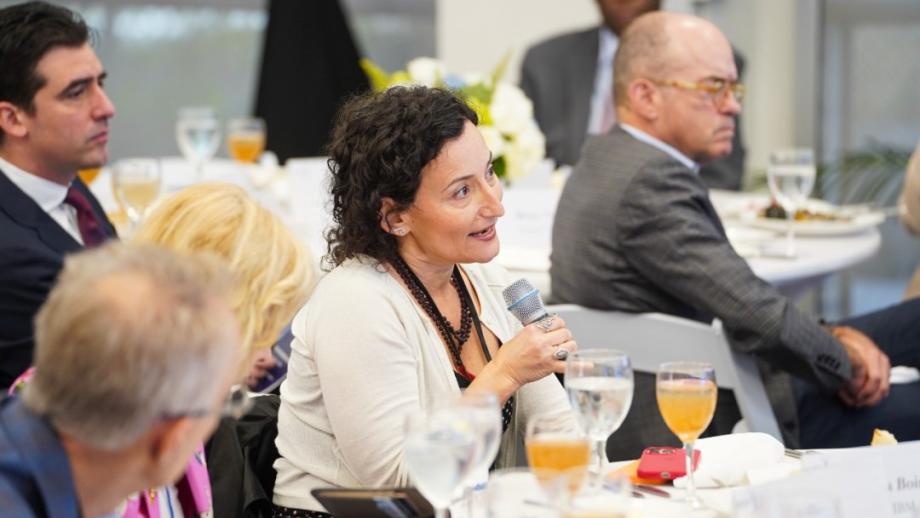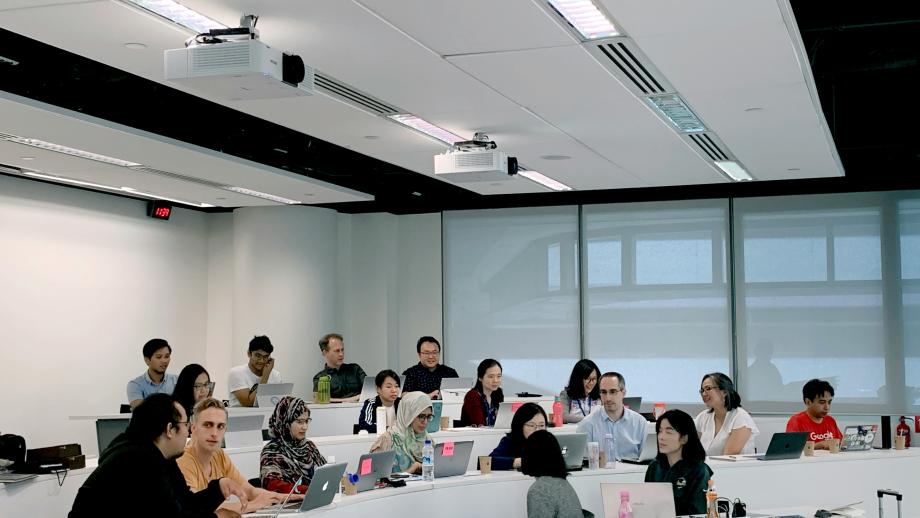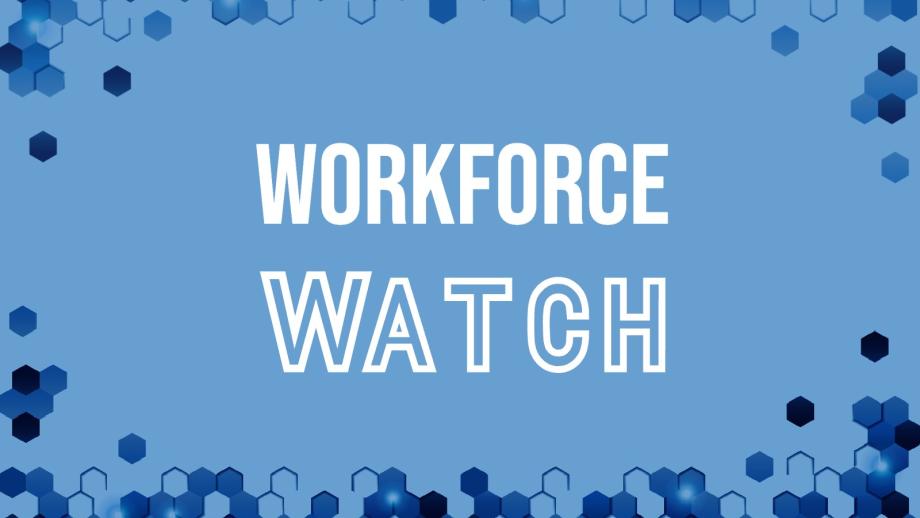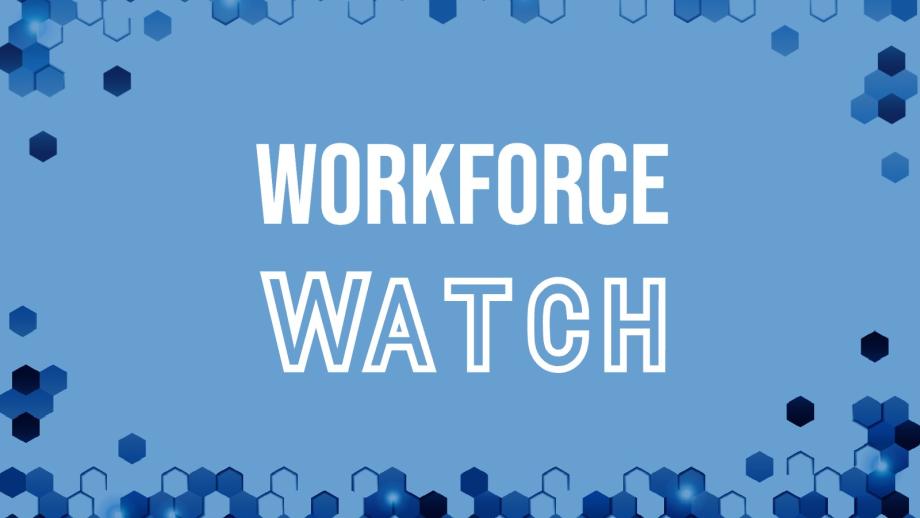Earlier this year, BHEF launched its first-ever Faculty Innovation Fellowship. The fellowship brings together a curated network of faculty members – nominated by the presidents, chancellors, or deans of BHEF-member institutions and strategic partners – to launch or enhance new or innovative employer-aligned concepts on their campus as capstone projects.
As the program had its second in-person session on August 14-16 at Drake University in Des Moines, Iowa, the BHEF team took a look back at some of the early themes and goals expressed by fellows during the first session through staff observations, fellow feedback, and live surveying of fellows’ goals, motivations, and experiences. One key insight: despite the on-going reputation of higher education as slow or not interested in change, our fellows show the opposite. They are eager, interested, and ready to support new or innovative models that advance student success.
- Faculty want industry partnerships
BHEF fellows were surveyed about their goals and ideal targeted skills. By and large, fellows universally shared an interest, willingness, openness, and eagerness to engage businesses and industry partners to improve the successful outcomes of their programs. Moreover, BHEF fellows were eager to explore new concepts, either as first-of-their-kind experiences in the field or by importing and testing best practices from other institutions. Yet despite this openness, fellows consistently shared barriers to fostering these collaborations and partnerships, from lack of knowledge of where to start, to concerns that business may not be interested, to the complexity of navigating their own institution’s relationships with industry. As part of the fellows’ next upcoming session, they will be provided tools in “ecosystem mapping” to help them analyze, plan, and pursue industry collaborations while balancing many of the common barriers to partnership.
- Many of the fellows are “academic entrepreneurs”
The majority show the characteristics of first-time academic entrepreneurs. Presidents and provosts clearly nominated faculty members who brought enthusiasm and fresh perspectives for the role of higher education and how it meets today’s changing expectations and environment. During our first in-person session in Baltimore, BHEF fellows shared their strong drive to implement significant changes within their institutions, embracing higher order vision and mission to redefine the student experience through new models and opportunities. They also expressed a common openness to embracing calculated risk and understanding how their stakeholders—from administrators to students to employer partners—could serve as both expert advisors and potential customers, a common trait among aspiring entrepreneurs.
- BHEF fellows are hungry for “innovation frameworks”
BHEF fellows have consistently noted an eagerness for frameworks and methodologies to cultivate innovative partnership projects. During our initial polling at the first session, “innovation” was the second-most desired theme articulated by faculty. To help with this, fellows explored the value of “being absurd” in brainstorming sessions, leading to creative ideas and innovative solutions. Just as importantly, fellows worked with their facilitator and BHEF staff to explore how an “innovation mindset” can be combined with partnership methodologies, like BHEF’s Purposeful Partnership approach, to channel those innovative mindsets into tangible, actionable collaboration models.
- Fellows are looking for practical applications
Fellows tell BHEF that hands-on experience is critical to their success. While each fellow joins with different levels of past or current experience in developing industry and business partnerships, all have shared a desire to take high-level concepts like leadership, change management, and innovation and convert them into action plans through simulated experiences. As part of the first experience in Baltimore, BHEF fellows practiced their elevator pitches by recording them live at the first in-person session. By doing this, we gave fellows an immediate opportunity to both self-assess their ability to articulate their projects in a succinct, persuasive way. Additionally, we’re giving fellows a way to track their progress. As part of the program, we’re going to ask a selection of business leaders and business intermediaries to review the pitches and offer feedback to be given back to the fellows. At the end of the experience, we’ll ask fellows to re-record their pitch using the learned experience of the fellowship and the feedback to help showcase their growth and learnings over the tenure of the program. The integration of practical skills like persuasion, marketing, and team management will play a significant role in their development and the success of their implementation.
- Leveraging technology and continuous development
Faculty are interested in the integration of learning analytics and artificial intelligence and the growing role of technology in jobs, skills, and education. As part of the first session, faculty discussed the rapidly growing impacts of GenAI on student learning environments and the workforce, led by David Metnick of Accenture. As faculty join us for the second session, we’ll dive deep into how different stakeholders can influence the design components of new curricular experiences and how they can leverage recent technology trends to re-shape how learners, students, and workers gain new skills and employment opportunities through higher education.
At just over halfway through this first experience, we are excited to continue supporting our fellows as they lead the way in transforming the educational experience for future generations. For more details about the Faculty Innovation Fellowship program, including how to sign-up for updates on the 2025 nomination process opening later this year, visit www.bhef.com/fif.
